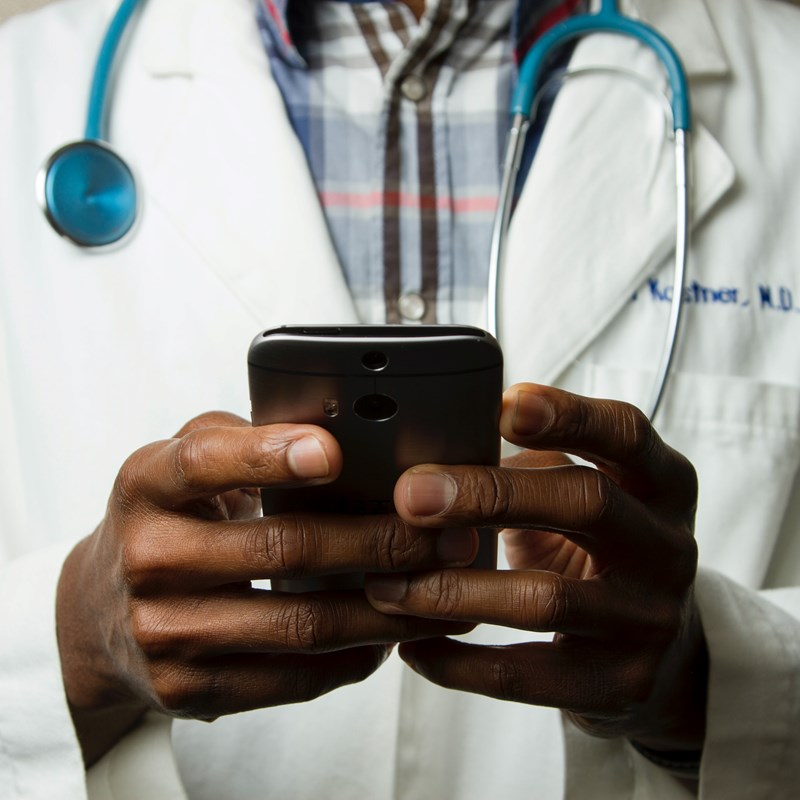
Mobile health, or mHealth is not new. We have covered the topic before, when contemplating the future of the health industry or how managing medications can be aided by smart tech. However, amid the Covid-19 pandemic in 2020, we are all having to adapt to a new way of life and with over 66% of the world’s population owning a connected mobile device, it’s no surprise mHealth is a growing industry.
So, what does mHealth encompass?
In general terms, it’s anything from SMS alerts or reminders from GPs, video consultations, apps, to a physical device. In this blog, we focus on devices and the benefits they bring to consumers and health practitioners and their patients.
What’s out there?
A quick search online will tell you, quite a lot! Health and wellbeing is something that concerns everyone. With so many different conditions and requirements, the variety of devices is incredible. Some devices supplement and enhance your lifestyle, some offer potentially life saving tracking. We’ve picked a variety to explore in detail.
How to save a life…
Globally, the healthcare profession is under strain and the coronavirus outbreak has only increased the pressure. In the UK we have seen an increase in online services offered. Face to face appointments have been avoided unless absolutely necessary and health trusts are offering online booking, apps, tele and eConsultations. Anything that offers a reduction in unnecessary travel, contact and gives users more control over their own health is welcomed.
Monitoring the situation.
Tyto Home is a fantastic example of an mHealth device which enables home examination and diagnosis. Currently available in the US, this incredible tool can take your temperature and heart rate, listen to abdominal sounds and take shareable photographs. It features:
Exactly the type of device to help alleviate concerns and manage conditions yourself at times when it is difficult or inadvisable to leave home.
In the UK, we have AliveCor’s KardiaMobile/6L, a portable ECG monitor which enables the user to detect their heart rhythm wherever they are. The 6L model offers 6 lead ECG data, providing a comprehensive view of the heart for medics. The device works in conjunction with smart phones using the Kardia app. A subscription fee increases the options available to include automatic sharing of data with family and caregivers and an ECG review every 90 days by a cardiologist. Another example of a remote healthcare device which helps when getting out is hard.
French company Withings are leading the way when it comes to connected tech in the healthcare industry. Their range boasts smart scales, watches, sleep analytics, thermometers and monitors. It is well publicised that a high temperature is a main symptom of Covid-19 and as such, smart thermometers are proving popular. Withings developed Thermo, an infrared thermometer. At a distance of 1cm from the temple, Thermo uses 16 sensors to take more than 4000 measurements in just seconds. No contact means improved hygiene and the Thermo app allows up to 8 user profiles on to which readings are automatically recorded and shareable.
Smart Watches
Probably the most well known of all wearable health tech, these devices are now very mainstream. Watches such as the Apple Watch and the Samsung Galaxy Watch are popular choices which include a SIM card. The watches have inbuilt GPS (used in conjunction with a smartphone initially), track heart rates, health and fitness stats. The addition of a SIM means users are able to take phone calls and send messages on the go, without taking out a bulky phone.
If you desire something more technical with a more medical twist, it can be worth looking beyond smart watches. Withings have created a range of hybrid smart watches and coming to market soon is Scanwatch. Looking like a traditional watch but with premium features including up to 30 days battery life, automatic activity detection, ECG monitoring, SpO2 sensors which track oxygen saturation and aid the detection of sleep apnea and connected GPS. The GPS function requires an app and a smartphone to work. The app compiles a thorough health report which can be shared with healthcare providers.
Something a little different..
As we mentioned before, the variety of smart health devices is vast, it isn’t all heart rates and steps taken. Atmotube PRO is a wearable, portable air quality tracker which detects fine particles and volatile organic compounds (VOCs). Particularly helpful for those with asthma, other respiratory diseases and allergies. This wearable reports to an app on your smartphone, allowing you to make an informed choice about how safe the air is around you. Recovery from Covid-19 is certainly helped by breathing clean air; for those living in a city, this type of device would be beneficial.
In a world where much feels uncertain, mHealth offers a way to regain an element of control, which in turn, can boost our mental health and that is something which is good for all.
For more information on how Arkessa enables connected health applications, get in touch on connect@arkessa.com.